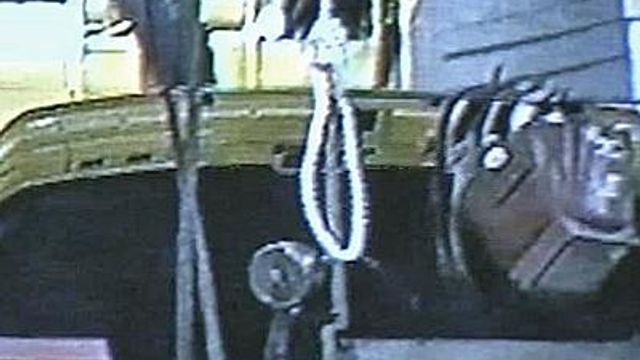Jena 6 Protest Resonates in Triangle
The symbolism surrounding one of the largest demonstrations in decades - including nooses hanging in trees - resonated with some in the Triangle.
Posted — UpdatedTens of thousands gathered in Jena, a small town in central Louisiana, to protest what they saw as racial injustice in the prosecution of six black teens. Known collectively as the Jena 6, the six are charged in the beating of a white teenager in the Jena High School cafeteria.
While many from the Triangle joined the busloads traveling to Louisiana, others protested closer to home. North Carolina Central University students collected donations for a legal defense fund for the six teenagers.
More than 100 students gathered at Shaw University, wearing T-shirts and holding signs that read "Free the Jena Six." Dr. William Barber, head of the state chapter of the National Association for the Advancement of Colored People, addressed the students.
Rallies were also held at the University of North Carolina-Chapel and North Carolina State University.
Much of the controversy surrounding the case was stirred up the symbols surrounding it, including one of the most hated symbols of Old South racism - a hangman's noose tied in an oak tree.
"The noose is a powerful and very frightening symbol, especially in the black community, because it's a symbol of lynching to many people," UNC-Chapel Hill history professor Harry Watson said.
The events leading up to Thursday's protest go back to August 2006, when a black student got administrators' permission to sit under the so-called white tree, where only white students sat. The next day, three nooses were hung in the tree.
To many blacks, a noose is as offensive as a Nazi swastika would be to Jewish people, Watson said, and the memory of a noose's symbolism is deeply ingrained in the African-American consciousness.
"It was there to remind people that there was a time when challenging white supremacy could cost you your life," he said. "That memory might have disappeared in the white community, but not in the black community."
Nooses have also made recent appearances in the Triangle. In 2002, seven black transportation workers sued the City of Raleigh's transportation department after a noose was hung over a workman's bench, allegedly by white workers.
A citizens' group says its working to prevent any further spread of racism associated with the noose.
The Raleigh Wake Citizens' Associating is pressing for displaying a noose to be classified as a hate crime. The group is circulating a formal proposal to state senators and representatives, among others.
"I think if burning a cross is a hate crime, then hanging a noose in this context is a hate crime," Watson said.
Daniel Coleman, with the RWCA, said the group is trying to avoid a situation such as the one in Jena. Three white students were suspended for hanging the nooses but not criminally prosecuted, and the local district attorney he could find no state law criminalizing the act.
"If you create a culture where it won't be tolerated, if not now, maybe one day, it will be outlawed or deemed an element of a hate crime," Coleman said.
Watson said it's important to keep in mind the noose's historical association with the lynching of black people.
"We have to remember that they're not making this up, that they're not blowing this out of proportion, that they're not making something out a whole cloth," he said.
"They're talking about real things that happened to real family members in many cases, and that has to be respected," he added.
• Credits
Copyright 2024 by Capitol Broadcasting Company. All rights reserved. This material may not be published, broadcast, rewritten or redistributed.






